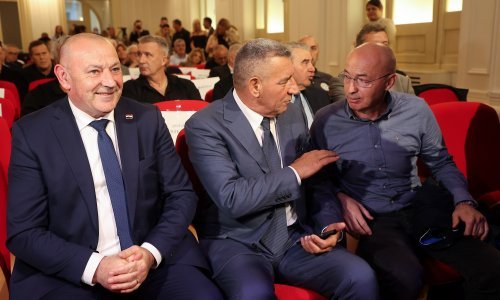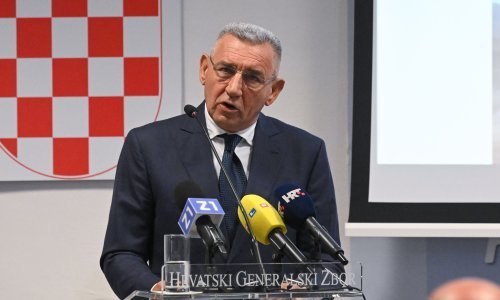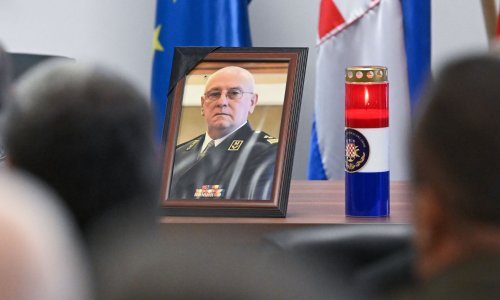The defence team for General Ante Gotovina says in its last reply brief at the International Criminal Tribunal for the former Yugoslavia (ICTY) that the Croatian general was found guilty of an unlawful attack in the 1995 Operation Storm without a single victim of such an attack having been identified in the judgement.
"It is entirely unreasonable that Gotovina is sentenced to 24 years based on a finding of unlawful attack on civilians through shelling where there are no identified shelling victims," reads the defence brief submitted on September 30 and made public by the ICTY on Monday.
In the reply brief the defence analyses the prosecution's response to the defence appeal against the judgement whereby Gotovina was sentenced to 24 years in prison for crimes committed against Serb civilians during and in the aftermath of the Croatian military and police operation of August 1995.
In its response to Gotovina's appeal against the judgement, the prosecution did not dispute any of the defence's key arguments, reads the reply brief, which closes the circle of written arguments in the appeals proceedings.
An oral hearing is now to be set in the appeals proceedings.
Gotovina's defence maintains that in its judgement the trial chamber made no finding of any civilian deaths or injuries from shelling and that no civilian was identified claiming to have been terrorised by, or left Croatia because of, any projectile fired into what the chamber describes as "civilian areas".
The defence also says that the prosecution did not dispute its argument that no formal decision was taken at Brijuni to expel Serbs, and that no single statement at the Brijuni meeting would indicate that there was an intent to target Serb civilians with artillery.
The prosecution also did not dispute the defence's arguments that there was no finding that civilians were deliberately targeted and that the means used in the attack were not unlawful, reads the reply brief.
"The Respondent's Brief is further undermined by the failure to address the critical Chamber finding that 'at the orders of Gotovina and (his artillery commander Marko) Rajcic, the HV (Croatian Army) fired artillery projectiles deliberately targeting previously identified military targets'," in four towns because that finding is irreconcilable with the finding that "whole towns were treated as targets", reads the defence reply brief.
The defence stresses that the prosecution failed to address the defence argument that UNMO, UNCIVPOL and United States investigators concluded there was no indiscriminate attack and that Human Rights Watch and the Croatian Helsinki Committee did not find any civilians claiming to have been terrorised by shelling.
The prosecution also did not contest the defence argument that Gotovina issued classified orders prior to and after Storm to prevent crimes against civilians and property.
By failing to do so, the prosecution concedes the Chamber did not find targeting of "civilian areas" amounted to a finding that civilians were targeted, the defence concludes in the reply brief.
"This admission demonstrates the Judgement's unreasonableness," says the defence.

































